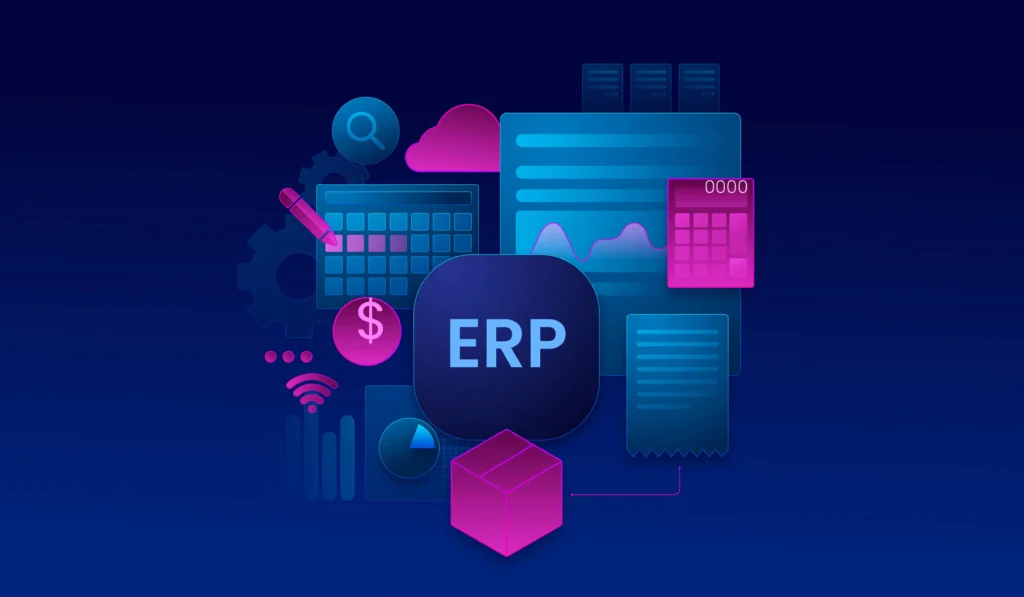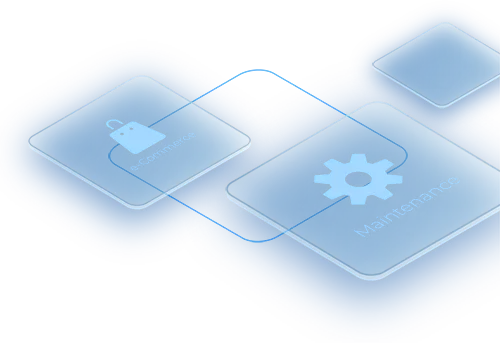
Why You Need ERP In Professional Services?

Why You Need ERP In Professional Services?
The professional services sector is a competitive industry where efficiency, organization, and client satisfaction are important.
Professional fields such as consulting, law, and engineering often face challenges related to project management, resource allocation, and financial tracking.
One powerful solution for addressing these challenges is the use of Enterprise Resource Planning (ERP) software.
The need for ERP in professional services has grown significantly as businesses try to maintain clarity and accuracy in their operations.
ERP systems act as centralized platforms for managing essential business functions, that lead to improved decision-making, and department collaboration.
Through this blog, we will explore how ERP systems help transform the professional service sector.
We will also understand why they are essential, and how to select the right system for your organization.
Content Index
- How ERP Works in the Professional Sector
- Reasons Why You Need ERP Software in Professional Services
- Advantages of ERP Systems in the Professional Field
- Steps for Choosing the Right ERP System
- Conclusion

How ERP Works in the Professional Sector
ERP systems are designed to combine core business processes into one integrated platform, which is especially valuable in the professional services field.
These systems unite functions like financial management, project scheduling, human resources, and client relationship management.
By offering a single source of truth for data, ERP systems eliminate data errors that can negatively affect efficiency in professional settings.
Professional services ERP solutions are tailored to meet the unique demands of service-based organizations.
For example, they track billable hours, monitor project progress, and manage resources.
The need for ERP in professional services arises from the complexity of managing diverse projects and meeting tight deadlines.
The ability to generate reports and forecasts allows companies to make informed decisions while maintaining compliance with industry standards.
ERP platforms also improve teamwork by giving everyone real-time access to project updates, making communication smoother and more effective.
They also help businesses allocate resources wisely, ensuring projects are completed on time, on budget, and to the highest standard.
Reasons Why You Need ERP Software in Professional Services
ERP (Enterprise Resource Planning) software has become essential for professional services organizations to stay competitive and efficient.
The growing demand for ERP in professional services is driven by operational challenges and the need for improved productivity and collaboration.
Here are some compelling reasons to consider adopting ERP solutions in this sector:
Improved Project Management
ERP software tracks project timelines, monitors budgets, and evaluates deliverables for improved accountability and client satisfaction.
ERP systems assist teams in staying focused and meeting critical client deadlines effectively.
Project management improves significantly by unifying diverse project data within a single system.
Timely updates and transparency within ERP software ensure higher project success rates for professional firms.
Accurate Financial Reporting
ERP systems manage financial records, including billing, payroll, and expense tracking, in accordance with the industry and legal standards.
The need for ERP in professional services arises from the complexity of handling diverse financial operations across multiple projects and departments.
Firms benefit from centralized tools that track income and expenditures with unmatched accuracy.
Automated calculations and consistent financial summaries ensure fewer errors and better strategic financial decisions.
Financial health becomes easier to manage while making sure that every detail is noticed during audits or budget reviews.
Resource Allocation
ERP systems enable the effective use of available personnel, balancing workloads and maximizing productivity across service teams.
Teams receive clear visibility into resource schedules, avoiding overlaps or issues during critical operations.
This strategic insight guarantees that resources are distributed where they have the most impact in real-time.
Advanced scheduling capabilities also allow for better utilization of materials or contracted services involved in project delivery.
Data Accessibility
ERP systems centralize company data, making it accessible to authorized personnel for better interdepartmental collaboration and decision-making.
Firms with ERP solutions experience faster communication and more streamlined sharing of critical documents and updates.
Centralized systems prevent miscommunication by ensuring everyone accesses accurate and updated data when needed.
Access control features improve security while promoting a connected, data-driven operational culture.
ERP Systems for professional services can help businesses meet their operational demands while achieving growth objectives.
Advantages of ERP Systems in the Professional Field
Adopting and implementing ERP solutions can significantly change the way professional services firms operate.
Below are some of the significant benefits:
Enhanced Efficiency
ERP systems bring complex processes together, allowing businesses to handle operations seamlessly without compromising performance or data consistency.
Professional services require efficient handling of administrative tasks and ERP systems enable precise management of daily tasks at scale.
The system ensures operational issues and difficulties are addressed properly to maintain the quality of ongoing business operations.
Efficiency translates to more available time for client-focused efforts and value-driven outcomes.
Better Client Relationship Management
ERP systems store centralized client data, enabling businesses to track interactions and provide personalized services based on past engagements.
Professional firms can engage better with clients by reviewing detailed historical service records stored systematically.
Automated reminders for follow-ups or key deadlines strengthen the relationship between service providers and clients.
ERP solutions ensure clients’ specific needs are met while creating higher satisfaction levels for improved loyalty.
Compliance and Risk Management
Professional services ERP systems help businesses adhere to industry regulations and mitigate risks through real-time monitoring of operational data.
Firms avoid legal complications by maintaining compliance across financial, human resource, or administrative procedures using ERP.
Automated compliance features keep stakeholders informed about deadlines or changes in policies and legal frameworks.
ERP software assists firms in keeping data aligned with international guidelines during audits or inspections.
Scalability
ERP systems grow alongside professional services firms, supporting additional resources and project loads as business operations expand.
Scalability ensures the software evolves with the addition of new offices, team members, or service areas.
Professional businesses benefit from ERP flexibility during periods of high workload or geographic expansion.
ERP systems provide the foundation for consistent quality even as the business portfolio diversifies or grows.
The need for ERP in professional services extends beyond immediate operational benefits to long-term business sustainability and competitiveness.
When implemented effectively, these systems can help businesses deliver consistent and high-quality services to their clients.
Steps for Choosing the Right ERP System
Selecting the right kind of ERP solutions for professional services requires careful consideration.
Here are some of the key steps to follow:
Identify Your Business Needs
Understand organizational challenges and define which specific ERP functions address immediate gaps in processes.
Assess areas like finance, scheduling, or HR that require integration through ERP functionality.
Consider challenges currently slowing down decision-making processes or creating redundancies within current workflows.
Clearly document goals to identify features critical to selecting the best ERP option for professional needs.
Research and Compare Options
Study available ERP solutions designed specifically for professional services to match firm requirements.
Compare solutions based on costs, installation, and customer support timelines provided by vendors.
Thoroughly review ERP functionality to ensure a balance of adaptability, simplicity, and comprehensive data integration.
Consult reviews or case studies where similar organizations improved their business operations after using particular ERPs.
Vendor Consultation
Contact ERP vendors to review options matching the organization’s operational vision or long-term plans.
Highlight the need for ERP in professional services with respect to your business to match your solutions with industry-specific challenges and demands.
Seek detailed software demonstrations focusing on how ERP can work specifically within professional service environments.
Evaluate solutions like EBR’s ERP system, designed specifically to address the complexities of service-based operations.
Collect detailed feedback about post-installation support options available to maintain system functionality long-term.
Understand each vendor’s contract terms and analyze whether it provide flexibility in services provided post-purchase.
Consider Scalability
Select ERP systems designed for long-term growth to allow easy addition of features or expanded roles over time.
Firms seeking flexibility should confirm that ERP solutions support integrations with emerging software platforms or tools.
Scalability ensures ERP systems continue providing maximum functionality during high-demand business expansions.
ERP vendors committed to scalable options tend to offer customizable installation setups for evolving needs.
Test and Implement
Conduct live trials by testing firm processes in ERP solutions before committing to contracts.
Professional services benefit greatly from observing whether ERP setups integrate smoothly before broader rollouts.
ERP solutions are tested thoroughly for flexibility, allowing organizations to analyze weak points within workflows and address them.
Effective onboarding strategies post-installation significantly improve the long-term utility of the selected ERP software for firms.
Professional services ERP solutions should match your long-term goals while addressing immediate operational demands.
Taking these steps will help your firm make an informed choice that delivers tangible benefits.
Conclusion
Professional services face unique operational challenges that are difficult to overcome without the right tools.
The need for ERP in professional services arises from these challenges, including managing diverse projects, staying within budget, and ensuring high client satisfaction.
ERP systems provide the necessary tools to manage projects, finances, and resources with precision and reliability.
By investing in the right ERP solution, professional services firms can achieve operational excellence and foster lasting client relationships.
With the advantages of Professional Services ERP firmly in place, organizations can focus on delivering value while driving sustainable growth.
Get a closer look at ERP systems with these topics.
- Common Challenges in ERP Implementation
- Why You Need ERP In Retail?
- Why You Need ERP in Construction?
- Why You Need ERP In Hospitality?
- Why Contracting Businesses Need ERP Software
Let's Connect!
Are you currently exploring software solutions for your business? 🤔
Great! What’s the single biggest challenge you’d like a software solution to solve for your business? 🎯
💡 Suggested Solution Ideas:
Just one more step! Share your details so our experts can connect with you personally and discuss tailored solutions. 🤝
Thank You for Connecting! 🎉
We've received your information and a specialist will be in touch with you very shortly to discuss how we can help your business thrive.
In the meantime, feel free to browse our resources or reach out if you have immediate questions.
Understood! 🙏
No worries if you're not exploring software solutions right now. Our door is always open if your needs change!
Feel free to explore our other offerings or connect with us anytime.
Featured






